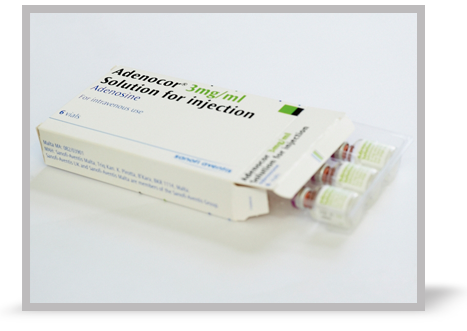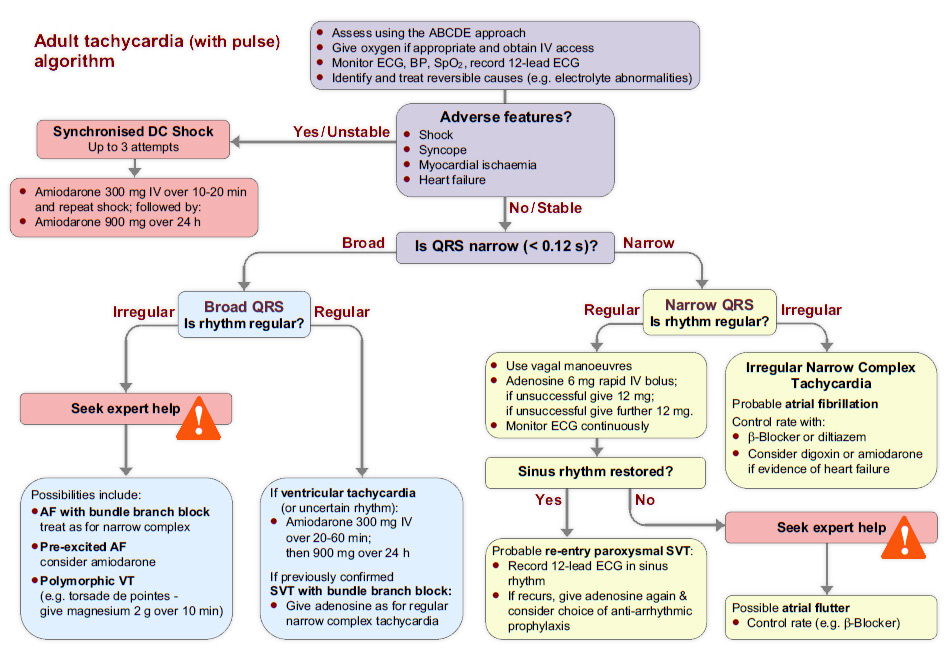
- Treating a regular narrow-complex tachyarrhythmia
In the absence of adverse features, regular narrow-complex tachyarrhythmia may be treated with vagal manouevres or adenosine.

Vagal manoeuvres
If a patient has adverse features and is at risk of deterioration because of the tachyarrhythmia then vagal manoeuvres may be considered whilst preparations are being made for synchronised cardioversion. Synchronised cardioversion is discussed further in 'Perform synchronised cardioversion'. If vagal manoeuvres terminate the arrhythmia, cardioversion will not be needed.
In the absence of adverse features you should start with vagal manoeuvres:
- Carotid sinus massage or the Valsalva manoeuvre will terminate up to a quarter of episodes of paroxysmal SVT. An ECG (preferably 12-lead) should be recorded during each manoeuvre.
- If the rhythm is atrial flutter with 2:1 conduction, slowing of the ventricular response will often occur and reveal flutter waves, if this is the case seek expert help.
- If vagal manoeuvres do not terminate the arrhythmia or demonstrate underlying atrial flutter consider using adenosine.
Adenosine
If vagal manoeuvres have been attempted and the arrhythmia persists (and it is not atrial flutter) then 6 mg adenosine should be administered as a very rapid intravenous bolus.
A relatively large cannula and a large (e.g. antecubital) vein should be used. You should:
- Check for contraindications such as asthma
- Warn the patient that they will feel unwell and experience chest discomfort for a few seconds after the injection. Record an ECG (preferably 12-lead) during the injection
If the ventricular rate slows transiently, but then speeds up again, look for atrial activity such as atrial flutter (or other atrial tachycardia) and treat accordingly.
If there is no response to adenosine 6 mg, give a 12 mg bolus. If there is no further response give one further 12 mg bolus. Apparent lack of response to adenosine will occur if the bolus is given too slowly or into a small peripheral vein.
References
Algorithm:
The tachycardia algorithm
The tachycardia algorithm is available in chapter 11of the ALS manual.

